Penance
- Year
- 2012
- Original title
- Shokuzai
- Japanese title
- 贖罪
- Director
- Cast
- Running time
- 270 minutes
- Published
- 9 August 2013
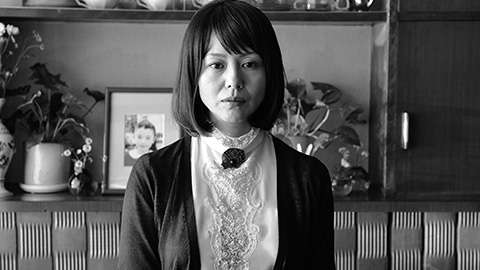
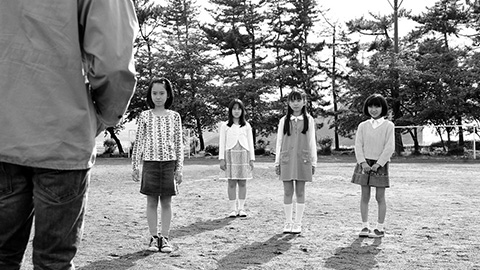
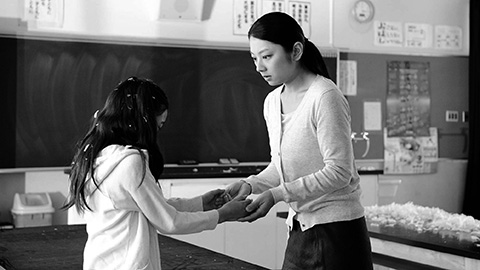
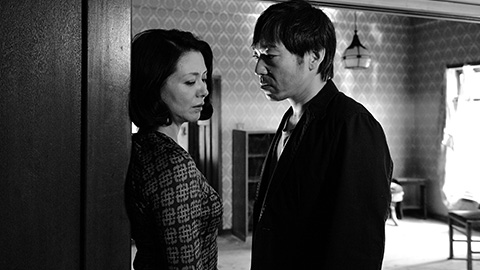
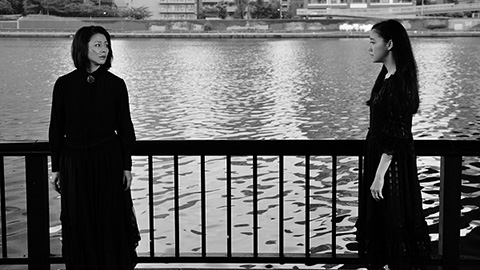
by Tom Mes
"I'm interested in the values that the individual has come to embrace," Kiyoshi Kurosawa once said in an early interview with Midnight Eye. "For the individual to re-assess those values and understand the way in which those values that he has come to embrace are in fact the forces that have come to oppress him."
Ostensibly an epic tale of revenge, Kurosawa’s Penance gradually reveals itself a shining example of this philosophy - albeit with ‘her’ replacing ‘him’. The premise seems clear-cut enough: a child molester murders little Emili, but the four friends that saw him take her away say they can no longer remember his face. Emili’s mother (Koizumi) vows to ensure that the remainder of the quartet’s lives will be a lengthy penance for letting her daughter’s killer get away.
Fifteen years later it’s not so much the mother’s "curse" that will become the now fully-grown foursome’s downfall as their own chosen paths in life. In four acts we witness how the lingering childhood trauma is but one of many factors in the demise of these young women and those closest to them: Sae (Aoi) accepts a marriage proposal from a rich industrial heir that makes her the literal hostage of her own childlike nature; strict teacher Maki (Koike) becomes herself the victim of all too rigidly applied institutional rules; reclusive Akiko (Ando) loses herself in delusions; and manipulative Yuka (Ikewaki) harbours ambitions for which she is willing to sacrifice even her closest relatives.
In adapting Kanae Minato’s novel of the same name, Kurosawa tells these stories as moral tales, with archetypal characters and at times an almost fairy tale-like atmosphere – with wicked stepmother Kyoko Koizumi continuously lurking in the background. That the film possesses such an otherworldly ambiance is all the more remarkable, not to mention admirable, because Kurosawa sets the intrigue within a strictly realistic framework. Family ties are of a very contemporary dysfunctional variety, even more so than in the director’s award-winning household drama Tokyo Sonata; the two actors who incarnated that film’s gradually disintegrating couple, Koizumi and Kagawa, are very telling cast here as Emili’s mother and her murderer.
The director once again shows himself a master at exploring the grey area between the mundane and the ghastly – increasingly discovering, and expressing, the latter as inherent in the former. The ghosts from such previous films as Pulse and Séance have been replaced by the spectres of the past, which haunt their victims all the more persistently for existing within them, instead of waiting in a dark corner of the room.
Characteristically, Kurosawa peppers his film with cinematic references. The Akiko episode for example, in which the young hermit suspects her brother of child abuse, brings to mind Hitchcock’s Suspicion, including a subtle nod to the famous last scene of Cary Grant climbing the stairs to wife Joan Fontaine’s bedroom carrying a glass milk that may or may not have been poisoned.
Penance was originally broadcast on satellite TV channel Wowow in five episodes, with the final instalment revealing the mother’s own less than savoury past. The four and a half hour theatrical cut was shown at festivals and subsequently received distribution in several European territories as a diptych. The decision to apply the Kill Bill / Lord of the Rings method of distribution outside the multiplex circuit is a fascinating one, all the more so for a film by a director who in marketing terms hardly ranks among the most established art house auteurs. With the possible exception of Hirokazu Koreeda, the reach of Japanese filmmakers has lately, certainly in Europe, been increasingly limited to the well-intended but nevertheless ghetto-like circuit of Asian film festivals. A successful theatrical run for Penance could go some ways toward breaking this vicious circle and bring Kurosawa and a number of other great filmmakers the wider cinephile audience they deserve.
Market shares aside, the choice to divide Penance into two parts greatly benefits Kurosawa’s methods. One of the director’s great skills lies in suggesting the existence of a world beyond the frame, a world that here seems to extend forever, infusing every shot with a heavy sense of dread. One could call this dread ‘fate’, but fate cannot be filmed. The power of Kurosawa is his ability to render such abstract concepts perceptible – and it would be tempting to use the word ‘tangible’. It is this purely cinematic quality that elevates him above restrictive categories like genre cinema or Asian / Japanese cinema and rightly place him on the world stage.
All the more reason to rejoice, then, that Kurosawa appears to have struggled free from the atypically long period of inertia that followed Tokyo Sonata, with 2013 seeing the nationwide release of his new science fiction feature Real, starring Haruka Ayase and Rurouni Kenshin’s Takeru Sato, as well as a more limited run for the very intriguing half-hour short Beautiful New Bay Area Project. Shot with Chinese funds, this little tale of a hotshot young architect (Tasuku Emoto) who falls for a female construction worker (Mao Mita) he spots labouring on the site of his latest project is one part Fritz Lang’s Metropolis and one part Bruce Lee’s Game of Death.